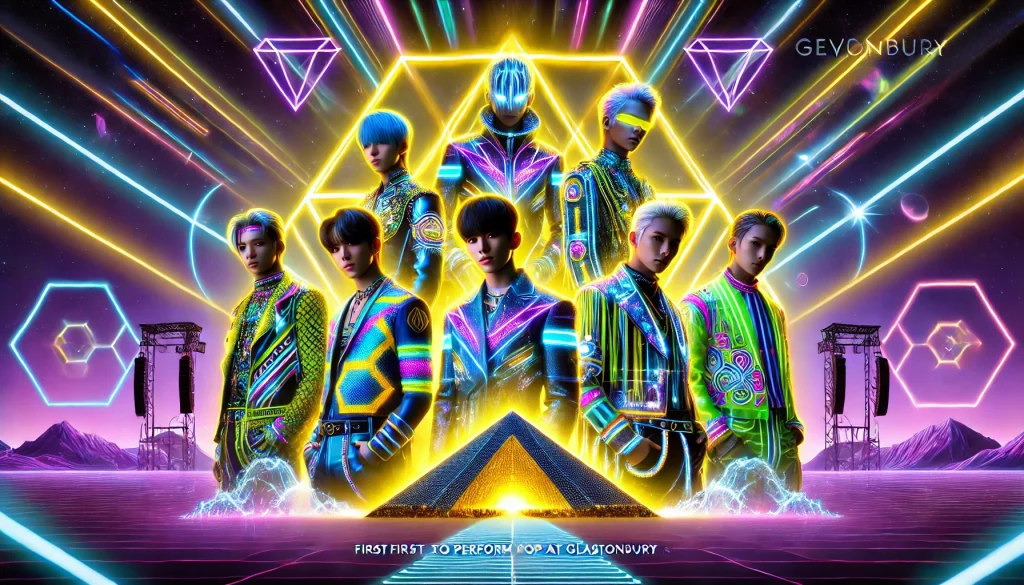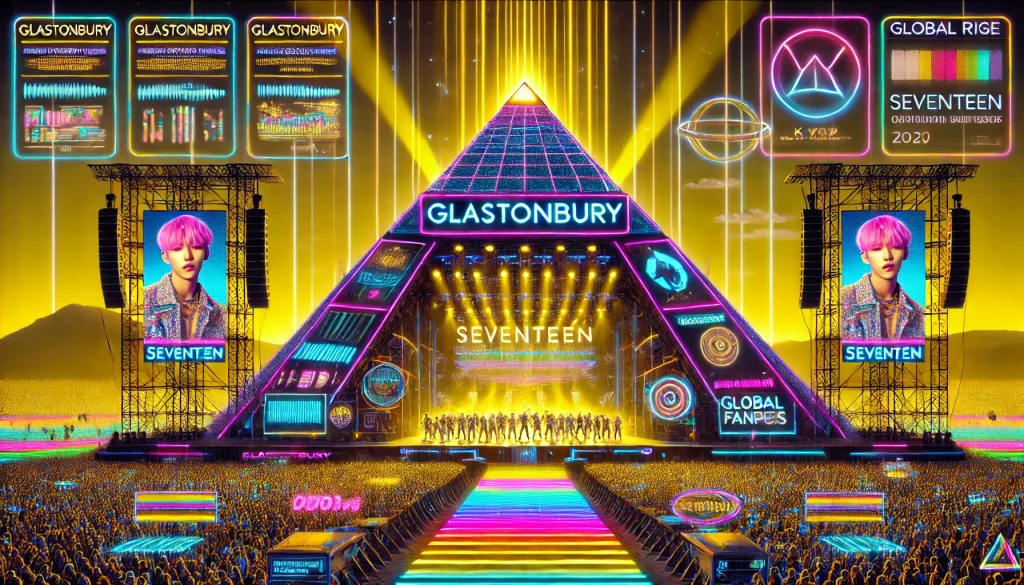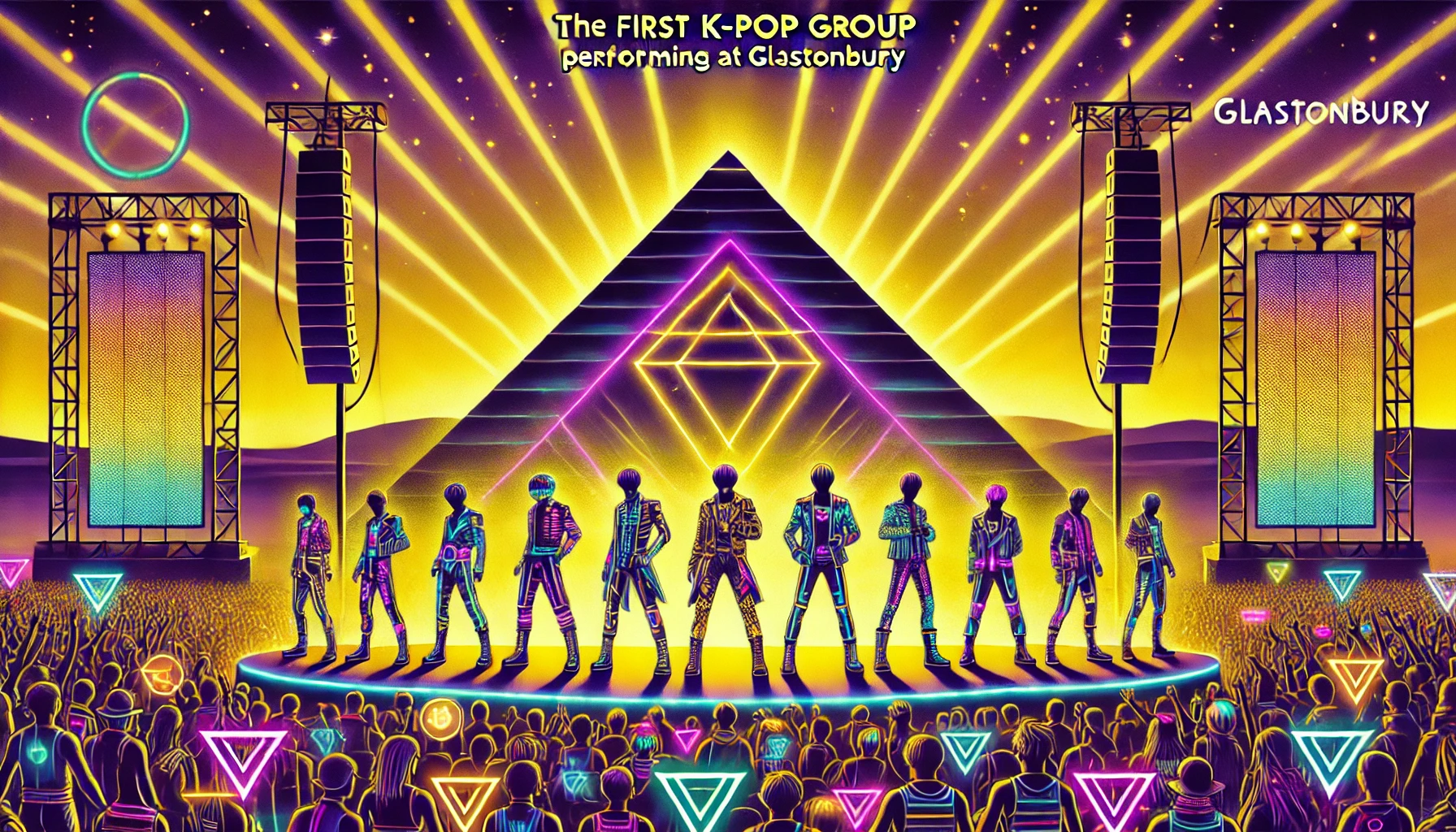
The world’s most iconic music festival, Glastonbury, has opened its arms to K-pop with the debut of its first-ever K-pop group, a groundbreaking moment in the history of K-Culture. As K-pop continues to expand its global influence, this milestone at Glastonbury showcases not only the genre’s skyrocketing popularity but also decades of deliberate cultural planning by South Korea. For fans of Korean culture and international music, this is a thrilling development that signifies how strategic investments in the Korean Wave, or “Hallyu,” have reshaped cultural boundaries. This article dives deep into how Glastonbury’s choice of a K-pop act didn’t happen by chance but rather is part of a long-term government-supported vision that has boosted Korean culture on a global scale.
Korean Diplomacy and K-Pop’s Global Rise
South Korea’s strategy to export K-pop and Korean culture dates back to the late 1990s and has since grown into a sophisticated, multi-faceted approach. As the popularity of K-dramas, fashion, and especially K-pop took hold globally, South Korea’s Ministry of Culture, Sports, and Tourism increased its support for cultural exports. With incentives, grants, and specialized agencies like the Korea Creative Content Agency (KOCCA), the government has been relentless in promoting Korean media, art, and fashion beyond its borders. Through this investment, K-pop acts have moved from local stages to massive festivals worldwide, including Coachella and now, for the first time, Glastonbury.
This coordinated promotion of Korean culture has led to the success of acts like BTS, BLACKPINK, and others, creating demand worldwide. As the ultimate music pilgrimage, Glastonbury’s stage for K-pop illustrates how cultural diplomacy can propel a nation’s soft power, positioning South Korea as a leader in global entertainment.
K-Pop’s Appeal to Western Audiences

For years, K-pop has drawn in Western listeners with its fusion of catchy beats, high-concept visuals, and meticulously crafted performances. This mass appeal isn’t coincidental; rather, it’s designed to captivate audiences with high production value and a blend of diverse influences, including hip-hop, pop, and R&B. Korea’s entertainment companies, well-aware of the formula for mainstream success, invest heavily in songwriters, choreographers, and visual artists from around the world. Thus, K-pop is tailored to a global audience, combining Korean language lyrics with English hooks, visually stunning music videos, and themes that resonate with young audiences everywhere.
The cultural crossover has been so effective that international festivals like Glastonbury can now count on significant audiences for K-pop acts. This global success reflects a growing trend where cultural boundaries blur, allowing fans worldwide to connect through shared interests in entertainment and fashion. With the inclusion of K-pop at Glastonbury, we see just how far Korean entertainment has come, becoming both a cultural and economic powerhouse in the music industry.
Glastonbury’s Embrace Reflects Cultural Shifts
Glastonbury, traditionally a bastion for rock and alternative music, is seen by many as a “rite of passage” for artists. The decision to introduce a K-pop group signals a significant shift in the festival’s direction, aligning with a global audience that now demands more diversity in musical genres. South Korea’s government-backed promotion of K-pop has been instrumental in building this bridge, fostering a climate where non-Western music styles can share the stage with legacy acts.
This move aligns with recent trends that celebrate multiculturalism and diversify representation within mainstream media. At Glastonbury, audiences not only get to witness Korean culture in its electrifying pop format but also see an expanded representation of global music on one of the world’s most prestigious stages. This sets a precedent for future lineups, paving the way for more Asian acts in Western music festivals and reinforcing K-pop’s role as a cultural force beyond its traditional fanbase.
Glastonbury: Symbol of Korean Cultural Success

The presence of a K-pop group at Glastonbury is not simply a performance; it is a testament to the success of South Korea’s cultural strategies. By elevating its entertainment industry, South Korea has strategically branded itself on the global stage, allowing the world to embrace Korean culture in multiple forms. From food to fashion and, now, to premier music festivals, the ‘Korean Wave’ is far from slowing down. By making such strides, South Korea has given Glastonbury attendees a new taste of what the global music industry can become—a melting pot of creativity, style, and genre.
This international exchange reshapes the future of K-pop and positions it as a central player in global entertainment, empowering other countries to also showcase their unique cultural assets on similar stages. For fans and industry players, this development brings an exciting prospect of further genre fusion and the promise of a truly global music culture.
The Larger Impact of K-Pop at Glastonbury
The inclusion of a K-pop group at Glastonbury reflects an era where pop music no longer conforms to specific languages, genres, or geographical boundaries. Glastonbury has symbolized Western pop and rock supremacy for decades, so welcoming a K-pop act reveals a shift in how festival organizers—and audiences—perceive music from other regions. Korean culture has reached this milestone not only through musical innovation but through a government-supported strategy that has placed cultural exports at the heart of its international image.
As more Western music fans embrace K-pop, there are wider implications for the music industry. This will likely lead to more Asian music acts at major festivals, the collaboration of Western and Eastern artists, and possibly new subgenres that blend Korean styles with other international sounds. For K-pop, this broad acceptance across platforms like Glastonbury means more opportunities to reach even larger audiences, breaking further barriers.
The success of K-pop at festivals also impacts Korean society, bringing pride and global attention to Korean artistry and innovation. Fans, too, find their tastes validated as their favorite artists gain recognition on a level that was once unimaginable. This progression in music culture encourages a dynamic mix of genres, expanding the spectrum of music festivals and their appeal to more diverse audiences.
Conclusion
The debut of a K-pop group at Glastonbury is more than a highlight in K-pop history; it’s a significant chapter in the story of cultural exchange. South Korea’s investment in promoting its entertainment industry has created a ripple effect that is now making waves at the highest levels of global music. By inviting K-pop into Glastonbury, the music world acknowledges the genre’s universal appeal and the power of strategic cultural diplomacy.
As fans celebrate this achievement, they are also invited to continue exploring and sharing K-Culture, discovering what makes it resonate so widely. Glastonbury’s welcome of K-pop signals a new chapter of inclusivity in entertainment, reflecting a trend that will undoubtedly continue to grow, reshaping the way audiences, artists, and nations come together through music.
Resources
- The Guardian: Seventeen make history as first K-pop band to perform at Glastonbury
- BBC: Seventeen: The K-pop band making Glastonbury history
- Metro.co.uk: Glastonbury fans go wild for history-making K-pop pop group
- Radio Times: Who are K-pop band Seventeen? Meet Glastonbury 2024
- Somerset Live: Seventeen at Glastonbury 2024: Livestream the K-pop

